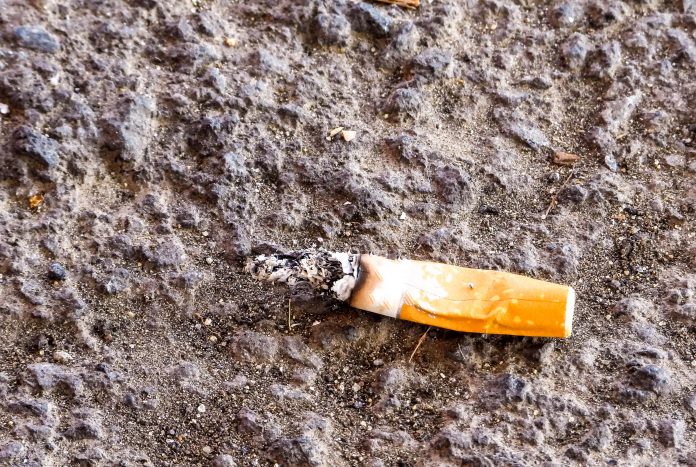Dyl Kurpil, Managing Director, District Enforcement asks, are the general public aware of what is actually classed as litter and the Fixed Penalty Notice (FPN) litterers can be subject to?
Dropping litter is a criminal offence, yet many people are not only oblivious to the criminality and the risk of fine, but many are totally unaware of what is actually classed as litter. From cigarette butts to chewing gum, and bread for the pigeons to apple cores, do people actually really know what litter is and that those who leave litter behind can be subject to a Fixed Penalty Notice (FPN), with its attendant £150 penalty?
No butts allowed
Whether it’s a cigarette butt, seeds for the birds, or an orange peel – the understanding of what constitutes litter differs from person to person. Smokers absent-mindedly throwing a used cigarette down a drain will be infuriated by others dropping chewing gum or crisp packets. Perception across society can vary.
However, cigarette butts are not compostable – and throwing them on the floor or down a drain does little to solve the problem, as it simply becomes someone else’s. If the average smoker were to discard just half of their unwanted cigarettes annually, 3,600 butts made of non-biodegradable plastics would be littered. Furthermore, once littered, they leach toxic chemicals — such as acetic acid, hexamine, arsenic, and chromium— into our waters, where harmful substances can remain for up to 10 years and can be deadly to the wildlife that ingests them.
Breaking the law
Ultimately, the act of littering cannot be rationalised – littering is a criminal offence, under the Environmental Protection Act 1990 (as amended) and there is clear guidance from the Department for Environment, Food and Rural Affairs (2006), which states: ‘Litter is best defined as something which is improperly discarded by members of the public in an area. It includes sweet wrappers, drinks containers, cigarette ends, gum, apple cores, fast food packaging, till receipts, small bags…’ The guidelines also explain that: ‘Litter is something, more often than not, synthetic, which is improperly discarded by the public whilst sitting, walking, or travelling through an area.’
Urinating in public is also included in the definition of littering – an action that would certainly ruffle the feathers of someone feeding half a loaf of bread to the ducks every day. The offences here, in both cases, are the same. Whilst ignorance is no defence in the eyes of the law, does the public really know and appreciate this?
Further, even just dropping just a single sack of rubbish can be classed as fly-tipping. It doesn’t take much to be liable for a higher fine and can even lead the offending individual to the crown court. Items that have been incorrectly disposed of or wrongly left behind at the local recycling centre are also considered as fly-tipping, and individuals can be tracked down and may face serious consequences.
Effective action
In some cases, the misunderstanding of litter can be justified, whilst dropping glass bottles, beer cans and food wrappers in public areas – where they can be a hazard for both humans and animals – is undeniably reckless. The lack of consistent and reliable enforcement of this problem has led to genuine confusion for many local authorities and provided convenient excuses for others.
A consistent and effective strategy that includes applying a Fixed Penalty Notice (FPN) to all environmental crime offences would undoubtedly have a positive impact on both the awareness and behaviour of the public. For local authorities, though, this is yet another burden that is incredibly tough to resource with limited budgets; leading many to outsource environmental compliance, a service that can be cost neutral for councils.
Local authorities that are truly driven by the desire to improve existing approaches and preserve our treasured green spaces can dramatically improve their level of environmental compliance within their area by working with trusted third-party, cost-neutral enforcement teams. Crucially, this kind of service must integrate compliance with education and awareness to drive behavioural change too.
Improving awareness and mitigating widespread confusion surrounding litter solidifies the public’s overall understanding and is proven to improve behaviour by reducing the amount of litter discarded in both green spaces, high streets and roadsides across the UK.











